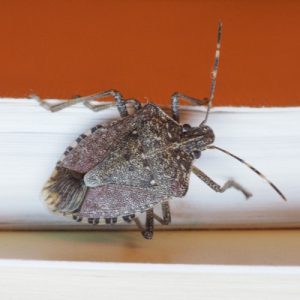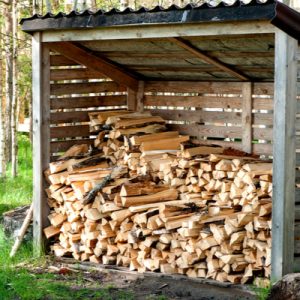Fall has arrived in the Charlotte area and as warm temperatures give way to cool breezes of fall, we know it won’t be long before winter is here. We aren’t the only ones that feel the chill in the air. Fall pests feel it too and they are on the move in search of overwintering spits. Insects usually find overwintering spots under tree bark, in old logs, under leaves, and even your home. If your home is not in good repair you could be sharing your home with pests like: 
Spiders
Spiders are the scourge of homeowners. They are the last insect you want in your home. As scary as they may be, most spiders are harmless and are actually beneficial insects because they catch and kill other pests like flies, moths, and mosquitoes. The reason you find more in your home this time of the year is that females are looking for new places to spin webs and lay eggs.
Stink Bugs and Kudzu Bugs
Are both members of the same family. They are native to Asia and are relatively new pests to the North and South Carolina area. In the fall, these pests gather around windows and sides of houses looking for warm places to overwinter. Sometimes they can get inside and you’ll find them crawling on your walls and windowsills. They are also a nuisance because they both emit a foul odor when squashed.
Fire Ants
One of the joys of living in the south is having to share it with fire ants. Fire ants are actually an invasive species. They were imported to the United States in the 1930s from the jungles of South America. Fire ants are known for their aggressiveness and their painful stings. If their colonies are built close to your home they can enter through cracks in your foundation or walls. Fall is a good time to eliminate fire ants because the colder weather makes them less active. Fire ants are dangerous insects in large numbers and should be dealt with as soon as possible.
Rodents
Squirrels, rats, mice, and other rodents are warm-blooded mammals just like us. And just like us, they don’t like the cold. Rodents require warm places to spend the winter and if they can get into your home, your attics, basements, and crawl spaces are where they’ll end up.
Fix Your Exterior
Now that you know what you are up against it’s time to take action and prevent your home from becoming overwintering hosts. To prevent these unwanted house guests, make sure your roof is in good repair. Check vents and trim boards for holes or gaps and repair any rotting wood. 
Clean Up Your Yard
Don’t let your fall chores pile up. Leaving leaves and grass clippings on your grass for too long will not only make your grass susceptible to lawn diseases, but it will also attract fall pests looking for shelter for the winter. Once they are close enough to your home they are just one step away from entering your home.
Store Firewood Away From Your Home
Firewood should always, always, always, be stored at least twenty feet away from your home. Log piles and firewood are hotbeds of insect activity in the fall. The softwood makes it an ideal place for many species of insects such as termites, ants, beetles, and centipedes. When you bring firewood inside make sure you put it directly on an already burning fire. The last thing you want is all the insects inside to flee into your living room.
Call The Pest Control Experts at Cramer
If fall pests are driving you up the wall, call the professionals at Cramer Pest Control. We have years of experience dealing with pests of all shapes and sizes. If you want to protect your home from fall pests this year, then ask about our residential pest control program.
Own a business? With our Commercial Pest Control program, we can save your small business from being overrun with pests.
Don’t wait for the problem to get out of control, call us now at (704) 763-0204 or (803) 802-7540 to get started. You can also contact us here for more information. Don’t forget to follow us on Facebook for the latest deals and check our blog for monthly pest control tips and tricks.
Winning The Battle With Fall Pests in North Carolina and South Carolina
Protecting North Carolina and South Carolina
